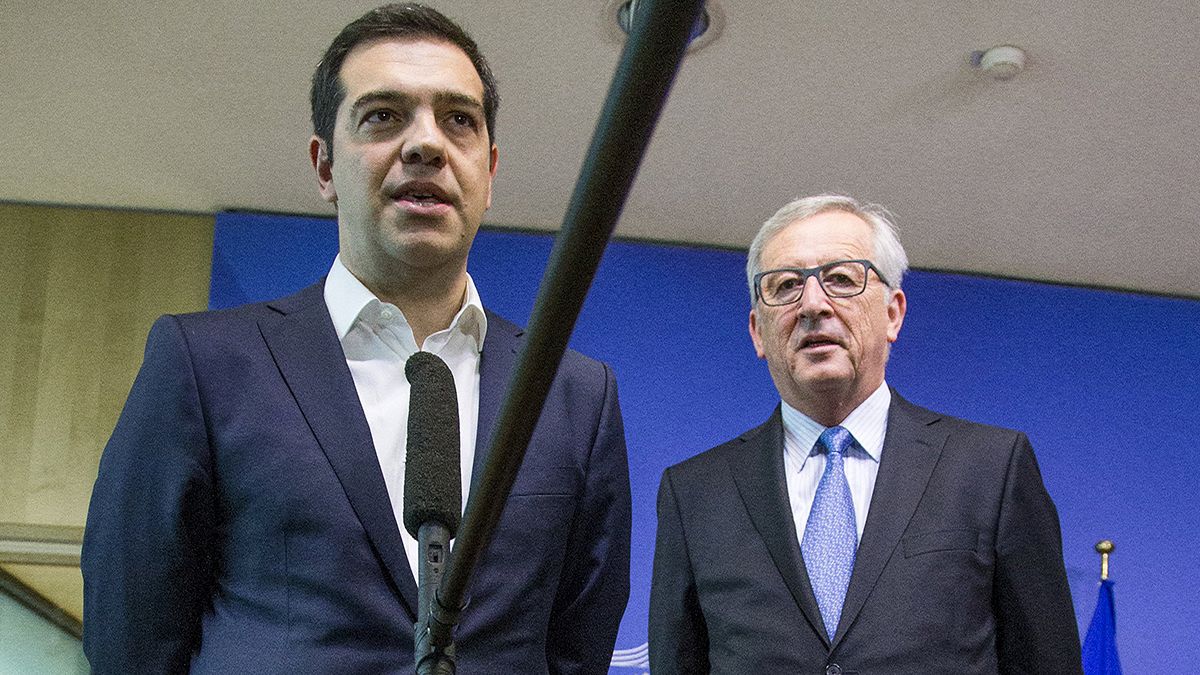Greece’s debt crisis is the saga that has seemingly dominated headlines for months (if not years) – the only positive being it’s gone on for so long
Greece’s debt crisis is the saga that has seemingly dominated headlines for months (if not years) – the only positive being it’s gone on for so long it’s almost exhausted the ability of newspapers to trot out the puns around Greeks and tragedies.
Yet while the story has endured, how many people understand the background? In fact how many understand the foreground, namely the question in this Sunday’s (July 5) referendum?
Why is Greece holding a referendum?
That may well have been what Greece’s international lenders asked themselves at the weekend, when Greek PM Alexis Tsipras surprised everyone by announcing a poll.
Athens says the referendum is being held to let the Greek people have their say on a reforms-for-bailout deal that it has put to its lenders, the International Monetary Fund (IMF) and the European Union.
Greece’s leftist leaders say the bailout terms are not acceptable, but that it’s the Greek people’s democratic right to have their say.
Are Greek people clear on what is being asked?
For Greeks with a degree in macroeconomics, yes, but for everyone else, it’s doubtful.
The referendum asks: “Should the proposed agreement be accepted, which was submitted by the European Commission, the European Central Bank and the International Monetary Fund in the Eurogroup of 25.06.2015 and consists of two parts, which constitute their unified proposal.
“The first document is entitled ‘Reforms for the Completion of the Current Program and Beyond’ and the second ‘Preliminary Debt Sustainability Analysis’.”
Clear?
There is also question marks over whether voters are being pushed in the direction the government wants – the ‘no’ option to reject the bailout comes before the box to accept it.
Greek referendum ballot question would be clearer is it was phrased as: Do you want to leave the EU? Vote: Yes if No And: No if Yes
— Jonathan Haynes (@JonathanHaynes) June 29, 2015
What would a ‘yes’ or ‘no’ vote mean for Greece?
.
PatChappatte</a> on the Greek referendum. For more from Chappatte: <a href="http://t.co/Pp7ah6iWBS">http://t.co/Pp7ah6iWBS</a> <a href="http://t.co/BeaNnilXCu">pic.twitter.com/BeaNnilXCu</a></p>— NYT Opinion (nytopinion) June 30, 2015
If Greece votes ‘no’ it is difficult to see beyond the country defaulting on its debt and leaving the Euro, writes the Economist.
But that scenario, adds the magazine, would lead to hardships that would be pinned on Tsipras, casting doubts over his future.
Tsipras is perhaps stuck between a rock-and-a-hard-place because a ‘yes’ vote is likely to pin more austerity on the Greek people, which he could again cop the blame for.
Of course, there is a chance we may not even get to Sunday’s referendum.
Some could view it as a mere bargaining chip for Greece in its negotiations, while others point to history. In 2011 then PM George Papandreou called a poll over the country’s bailout, but his government had collapsed before it could be held.
What are the origins of the crisis?
Greece, who joined the Euro in 2001, had been understating its debt for years, new PM Papandreou said in 2009. Greece has also been accused of not even meeting the convergence criteria for joining the eurozone.
Greece’s money woes were compounded by the global financial crisis, leading to the IMF, European Central Bank and the European Commission handing the country a 110bn euro bailout package in 2010 (it later rose to 240bn euros).
But the terms of the rescue deal obliged Athens to impose tough austerity measures. Greece’s economy has shrunk by a quarter in recent years and unemployment stands at 25 percent.
Tsipras and Syriza won power in January 2015 on a ticket of ending austerity.
Why has this blown up now?
The current bailout out to Greece expires on Tuesday (June 30) – the same that Greece is meant to pay back 1.6bn euros to the IMF.
Athens and its international lenders have been trying to hammer out a deal so that the final 7.2bn euro bailout installment can be released.
The EU and IMF want Greece to boost revenue by widening the scope of its sales tax and cut the numbers entitled to early retirement.
But, despite weeks of negotiations, a deal has not been reached.
What would the impact of a “Grexit” be?
If Greece exited the Euro it is likely to mean a fresh financial crisis – with the taps turned off from Brussels and the IMF, it would default on its debts, it’s been claimed.
Experts say it would have to revert to its own currency, which would be valued lower than the Euro, meaning a drop in living standards for Greeks. On the plus side that would make Greek exports cheaper and boost tourism.
From a wider perspective, financial markets are likely to be hit by a Grexit as investors realise that Eurozone membership is not irreversible. Investors may also pull out of other vulnerable EU countries, such as Portugal.
But it is questionable how contagious such a Grexit would be. Institutions have long-known the possibility of Grexit, increasing the likelihood that investors have taken action to avoid being exposed to such a scenario.



